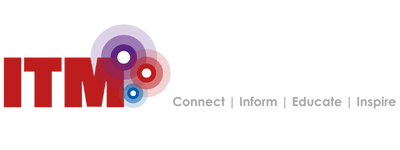Travel Managers Discuss Current Challenges and Trends at Latest ITM Buyer Knowledge Exchange Session
.png)
Travel managers are currently battling challenges with air content distribution and airline contract negotiations, particularly if their projected annual spend is less than £1M, according to ITM buyer members.
Global, EMEA and UK travel managers attending ITM’s latest Buyer Knowledge Exchange on 14th February revealed that some airlines are moving towards a leisure-focussed model in 2023, meaning pricing and volume-based discounts for corporates are less flexible than previous years. Lack of readiness for NDC is exacerbating the issue significantly and buyers are advised to alert internal stakeholders that changes in airline distribution of content will have an impact on the travel programme.
Other insights shared regarding how buyers are trying to manage major complexities with airline distribution include:
- some corporates are evaluating their global air strategy, considering local vs global agreements and the possibility of centralising teams
- buyers are looking to their TMC to accommodate changes and how this translates within bookings as NDC is increasing average ticket prices
- those buyers forced to change their preferred air supplier are looking into transferrable benefits for the traveller to help drive adoption.
Buyer Knowledge Exchange (BKE) sessions are hosted regularly by ITM to assist buyer members, helping them to problem solve common issues, ask questions of their peers and benchmark their approach. Travel managers taking part represent diverse industry sectors such as financial services, energy, food, technology, telecoms, consulting, media and entertainment.
In addition to the thorny issue of airline distribution, other key topics covered at the latest BKE, encompassed:
- TMC servicing levels – some buyers voiced their frustrations at having to prove their TMC’s value to their organisations’ C-suite via stakeholder engagement to drive understanding that service quality is an industry-wide issue. Buyers are looking towards their TMC to build a business case to validate their worth and ultimately demonstrate why changing TMC is not the answer.
- Changes to travel policy to support sustainability or ESG goals – buyers shared how they are working with their TMC to enhance sustainable travel options at point of sale, or considering use of procurement tools to benchmark sustainability metrics within their programme. Another recommendation was to introduce mandatory questionnaires for all sourcing to help buyers align their suppliers with business goals. Buyers all agreed that the introduction of sustainability within the procurement supply chain involves many stakeholders and should be viewed as a journey. Arguably without to be a shift in travellers’ perceptions towards business travel, there will be no significant change
- Elevating the travel team’s position within the business – proving the value of the travel function and raising the profile of the travel manager within their organisations is a common challenge among the buyer community. Tactics proposed include effective communications with C-suite emphasising travel programme objectives and how this is being achieved; a case study highlighting the importance of stakeholder relationships when entering a new geographical remit; and never under-estimating the power of simply getting to know stakeholders via meet and greet, face-to-face or online to facilitate communication of collective business objectives.
For a full download of topics discussed, visit ITM Resource to access the notes from the session. The next Buyer Knowledge Exchange takes place on 14th March 2023. Buyers can click here to register and join the discussion.



